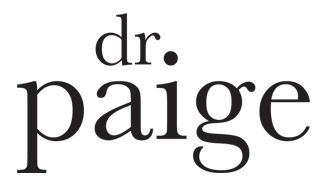Can Accountability Culture Work From Home?
The kitchen bench is my ‘new desk’, workout gear my ‘new work wardrobe’ and helping my daughter with her Grade 8 maths my ‘new brain break’.
Welcome to the ‘new normal’ of working from home.
The challenge with this – no, one of the challenges with this (and there are a few!) – is that the cues that help create cultural norms are missing. The banter with colleagues, the physical space of the workplace, even what’s displayed on walls, are all cultural symbols that signal ‘what’s important and how we do things around here’.
Because that’s what culture is all about.
From an evolutionary perspective, cultural norms are what current knowledge tells us ‘works’ most successfully for the tribe to survive and thrive. And this is the crucial point – what current knowledge tells us.
It can be easy to think of culture as something that is hard to change, but the reality is that culture is a learning process that uncovers what works for the tribe (your team) to successfully achieve its goals. As the tribe discovers more effective ways to ‘survive and thrive’, less effective cultural practices fall away and are replaced by newer ones that support the tribe to develop and grow.
So, back to my kitchen bench and working from home.
The good news is that when we look at culture as a learning process through which groups organise and create behavioural norms that help them reach their goals, working from home becomes less of a roadblock. Will things need to change? Yes absolutely, because the previous cultural norms established when we were working together in person are no longer the most effective way to take your team towards success.
What could this look like for accountability?
I recently wrote about building accountability culture using the 4Rs Containers of Culture framework I developed – Role Modelling, Routines, Rituals and Rhythms, so let’s look at each of these to see how we can make accountability culture work from home.
1. Role Modelling
Our brains are wired for connection and the learning and cultural cues we get from observing others is significant, particularly for leaders who – because of their perceived and real power in the group – have greater influence in setting cultural norms.
Because of this, leaders need to be aware and intentional about how their interactions in meetings, one-to-ones or through email model the accountability mindset, attitude and behavioural norms they want the team to follow.
For example, openly sharing progress towards your goals – even when it’s not going to plan – will create a cultural norm of transparency and safety. Doing this for non-work-related goals such as fitness, or a DIY project creates the opportunity for deeper connections with the team and role models that the non-work side of life is relevant and of value too. And this kind of role modelling can be done in a Zoom room as easily as a meeting room.
2. Routines
One benefit of cultural norms is that they help us organise and coordinate to be effective and efficient as we achieve our goals. Routines – the way we get the work done together – are what help us do this in a work environment. They are the mechanics of the team.
Working remotely can have a real impact on motivation as we lose the in-person contact with colleagues, the feeling of togetherness and the relational energy that comes with it. Even if we’re working on different projects, just being in the same physical space makes a difference – that’s why co-working spaces have become so popular.
One way to help create that connection and energy when working from home is to run virtual ‘work caves’ where the team come together via your virtual platform (Zoom, Teams etc.) to work individually but concurrently on important tasks. One team member ‘hosts’ by deciding on the timing of each work sprint and brain break exercises, and holding accountability check-in points at various points throughout and definitely at the end.
I’ve had personal experience of doing this and found it does wonders for focus and motivation when you know you’re going to have to share what you’ve achieved with the group at the end of the session!
3. Rituals
If routines are about effectiveness of a group, rituals are about connectedness – of the team members to each other and to the goals they are working towards. Rituals support the dynamics of the team.
Remote working environments make it more challenging for leaders to keep their finger on the pulse of team dynamics. Without the opportunity to walk around and ‘feel’ the energy in the team, you need to take a more proactive and structured approach to ensure team members can voice concerns, raise issues and provide feedback.
Eco-friendly cleaning products brand Method hold a quarterly, anonymous ‘Come Clean’ survey in which team members share their feedback on how the organisation is (or isn’t) living its values and meeting their strategic commitments. The CEO then discusses the results and addresses were they might be falling down in a town hall.
An open forum like this with your team will encourage transparency, feedback and debate – all important for accountability – and just as importantly, will make your people feel heard.
4. Rhythms
In terms of cultural norms, how frequently something happens sends a signal about important it is to helping the team achieve its goals. With remote working, the accountability cultural cues and nudges that were present in the physical work environment are missing, which may mean leaders need to dial up the frequency of their virtual replacements.
For example, sales targets or project milestone trackers that may have been displayed on a wall in the workplace and so could be seen at any time by everyone, could become the focus of15-minute ‘progress huddles’ two or three times a week; one-to-ones that may have been monthly or quarterly over lunch, now become a weekly 20-minute check-in over a coffee. The key is to keep these short, focused and with clear purpose. I think we’d all agree that we don’t need to spend any more time in virtual meetings!
The key to making accountability culture work from home is intentionality. Leaders cannot leave it to chance.
By seeing culture as a learning process and deliberately and explicitly using the 4Rs in new ways to create new – virtual – cultural norms for accountability, you can lead yourself and your team to thrive and succeed.
Want more?
You can read more about how leaders can take a more effective approach to accountability in my e-book, The Accountability Reset. Just click here to download it. And if you haven’t read my book Becoming AntiFragile yet, why not ‘try before you buy’ with the free chapter download here.
Time to talk?
If you’d like to talk about how we can work together to help you, your leadership team or your organisation reduce fragility by Resetting Accountability and/or thriving through uncertainty by Becoming AntiFragile. Simply click here and I’ll be in touch.

Dr Paige Williams
International Speaker, Author, Mentor
Determined to help leaders move beyond just the need for resilience, Paige provides practical, evidence-based strategies for leaders to become antifragile, lead themselves and their teams to thrive and succeed in the Decade of Disruption.





